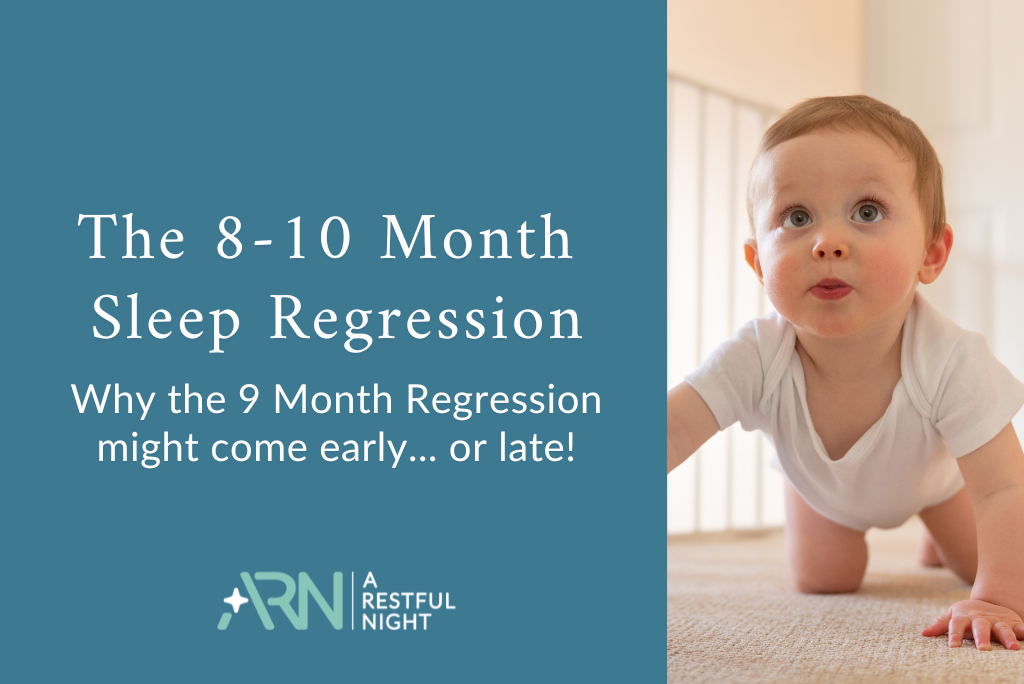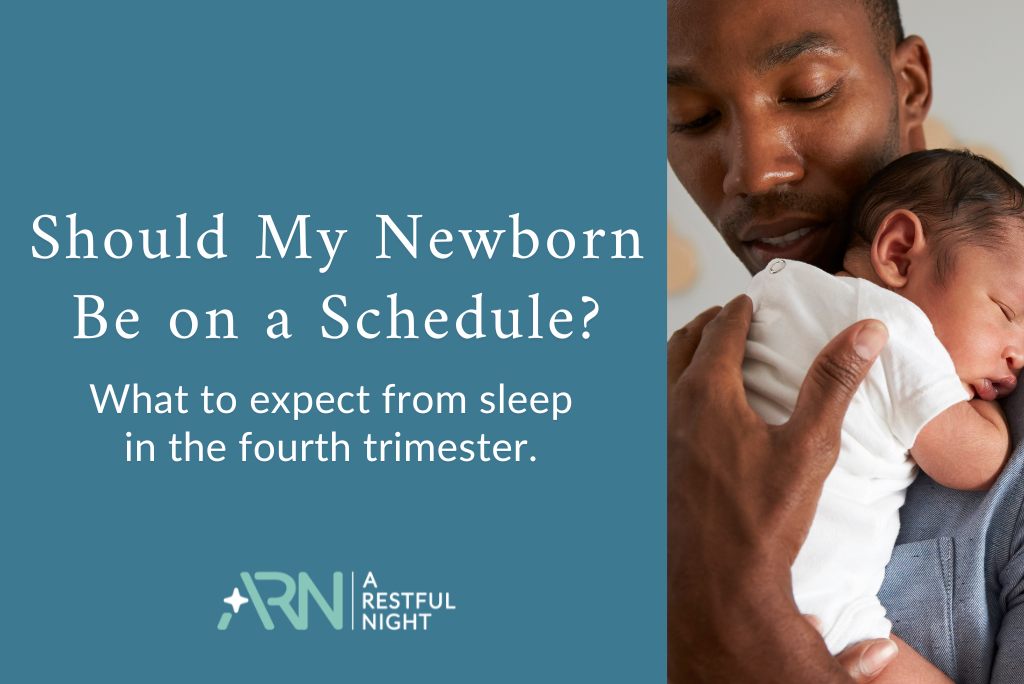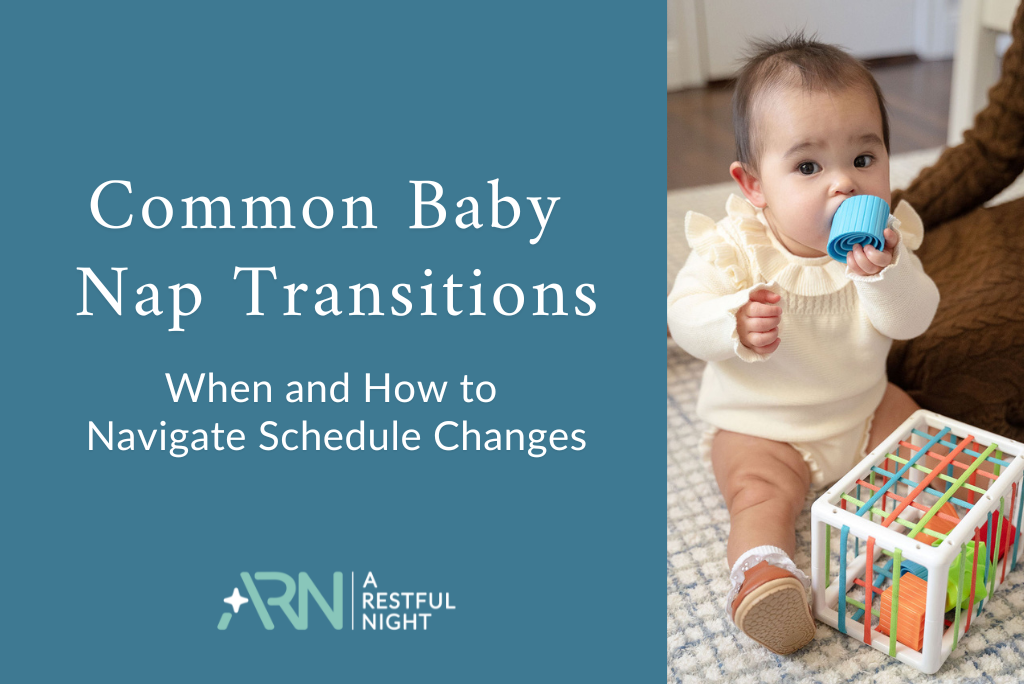6 Major Sleep Regression Periods: When They Happen and How to Handle Them
Just when you’ve settled into a good sleep routine with your baby, things suddenly shift. Your little one starts waking at unusual times, skipping naps, or resisting bedtime altogether. If this sounds familiar, you’re likely experiencing a sleep regression - a common and often frustrating phase for many parents.
Sleep regressions are a normal, temporary part of your baby’s development. They often occur during periods of rapid growth or as your child reaches important developmental milestones. In this guide, we’ll walk through the six major sleep regression stages, what causes them, and practical ways to support your baby (and yourself) through each one.
Let’s start by understanding what’s really going on:
What is Sleep Regression?
When a baby or toddler suddenly starts waking up more often, resisting naps, or struggling to fall asleep is known as Sleep Regression. These disrupted sleep patterns can feel frustrating, but they’re typically linked to developmental milestones, growth spurts, or changes in routines.
Why Do Sleep Regressions Happen?
Sleep regressions often happen because your baby’s brain is working overtime, learning new skills and growing fast! Common causes include:
Developmental milestones: Rolling over, crawling, or walking can make sleep tricky.
Schedule change: Time to push wake time or a make a nap transition
Teething pain: Those tiny teeth pushing through can be uncomfortable.
Separation anxiety: Babies around 8-10 months may struggle with being apart.
Routine disruptions: Starting daycare, travelling, or illness can throw off their sleep schedule.
Major Sleep Regression Periods & How to Handle Them
These phases can feel like a step backwards, but they’re actually a normal part of your child’s growth. Sleep regressions can challenge even the most patient parents.
To help you out, let's major sleep regression periods and explore gentle, practical strategies to help your little one (and you!) get back to restful nights.
4-Month Sleep Regression
The first big one! At 4 months, your baby’s sleep cycles mature, leading to more frequent wakings.
What Happens:
Shorter naps
Frequent night wakings
Fussiness due to overtiredness
How to Handle It:
Stick to a consistent bedtime routine.
Observe sleep cues and avoid overstimulation.
Start sleep training if you're ready.
6-Month Sleep Regression
At 6 months, many babies begin crawling and mastering new skills, leading to disrupted sleep patterns.
What Happens:
Trouble settling for naps
Practicing new skills in the crib
Night wakings, sometimes due to teething pain
Increased hunger from a growth spurt
How to Handle It:
Offer extra comfort but encourage self-soothing.
Reassess nap schedules to avoid overtiredness.
Maintain a calm sleep environment.
8-10 Month Sleep Regression
Separation awareness peaks here, and mobility is in full swing.
What Happens:
More frequent night wakings
Clinginess at bedtime
Resistance to naps
How to Handle It:
Offer reassurance but avoid creating sleep associations by “rescuing” your baby every time they struggle to fall back asleep.
Keep a predictable sleep schedule.
Introduce a comforting bedtime routine with stories or lullabies.
Is it time to drop a nap? If you think your child is ready to transition from 3 naps to 2, here’s an age appropriate schedule you can follow!
12-Month Sleep Regression
Turning one is a big deal! But it can bring on some sleep challenges.
What Happens:
Nap resistance (sometimes dropping from two naps to one)
Night wakings due to teething or excitement over new skills
Increased independence leading to bedtime battles
How to Handle It:
Stick to your consistent bedtime routine.
Ensure your child’s sleep environment is calm and cozy.
Stay patient - it’s a phase!
Check out a more advanced 2 Nap Schedule
18-Month Sleep Regression
Toddlers are busy exploring the world—and asserting independence.
What Happens:
Night wakings and early rising
Resistance to naps
Possible nightmares or fears
How to Handle It:
Use a calming bedtime routine.
Introduce a nightlight if fears emerge.
Maintain consistent boundaries around sleep, and set a predictable daily routine
2-Year Sleep Regression
The final major sleep regression! Around this time, cognitive leaps and growing independence can impact sleep.
What Happens:
Nap refusals
Bedtime stalling (“One more story, please!”)
Night wakings due to fears or dreams
How to Handle It:
Reinforce a consistent bedtime routine.
Offer comfort but avoid creating new sleep dependencies.
Maintain a predictable sleep schedule.
How Long Do Sleep Regressions Last?
Sleep regressions typically last anywhere from 2 to 6 weeks, depending on your child and the specific regression. Some may pass quickly, while others linger a bit longer, especially if compounded by illness, teething, or routine disruptions. The key is to stay consistent, patient, and responsive. These phases are temporary, and with the right support, your little one will settle back into better sleep.
What Are the Signs of a Sleep Regression?
Wondering if you’re in the thick of a sleep regression? Here are some common signs to look for:
Sudden night wakings after previously sleeping well
Short or skipped naps
Fussiness or crankiness, especially at sleep times
Increased clinginess or separation awareness
Difficulty falling asleep at naps or bedtime
Practicing new skills (rolling, crawling, standing) in the crib
Changes in appetite or growth spurts
If these behaviors appear suddenly and your baby was previously sleeping well, it’s likely a regression and not a permanent change.
General Tips for Managing Sleep Regressions
1. Stick to routines
Consistency is your best friend during sleep regression periods. A predictable bedtime routine—like bath time, storytime, and a song—helps signal to your little one that it’s time to wind down. Familiar patterns create a sense of security, making it easier for them to settle during disruptive phases.
2. Observe sleep cues
Yawning, rubbing eyes, tugging at ears, and fussiness are all signs it’s time to rest. Catching these cues early can prevent overtiredness, which often makes falling asleep even harder. Try to put your baby down before they reach the overtired stage.
3. Create a soothing sleep environment
A calm and cozy sleep space makes all the difference. Keep the room dark with blackout curtains. Next, you can use white noise to drown out household sounds to ensure a comfortable temperature. Soft, breathable bedding and a favourite stuffed animal can add extra comfort.
4. Manage overtiredness
An overtired baby is more likely to fight sleep and wake up frequently during the night. Stick to age-appropriate wake windows and nap schedules to avoid pushing your child past their limits. Sometimes, an earlier bedtime during regression phases can help them catch up on lost sleep.
5. Stay patient
Sleep regressions are tough but temporary. Your baby is learning, growing, and adjusting to new skills. During this time stay calm and consistent, even on the hardest nights. Remember, with a bit of time and care, this phase will pass, and better sleep is on the horizon.
6. Offer comfort but encourage independence
It’s so tempting to scoop your baby up at every whimper (we’ve all been there!). Gentle comforts—like rubbing their back, humming softly, or giving them a favourite lovey—can reassure them without creating habits that are hard to break later.
7. Don’t be afraid to adjust
Sometimes sleep regressions are their way of saying, “Hey, I need something different!” Maybe it’s time to tweak their nap schedule. If not that, they’re ready to drop a nap altogether. What you can do is watch for cues and don’t stress about sticking rigidly to routines - flexibility can make all the difference.
If you’re looking for a place to start when creating your daily rhythm, we have sleep schedules perfect for all ages!
8. Take care of yourself
Sleep regressions affect the whole family. Make sure you’re also getting the support and rest you need. Lean on your partner, family, or friends when possible, and don’t hesitate to reach out to a sleep consultant if things feel overwhelming.
When to Seek Professional Help?
If sleep problems persist for more than a few weeks or if they seem overly distressed - this is a warning sign to consult a pediatric sleep consultant. We offer complimentary consultation calls to help you select the sleep support that fits your family best!
Final Thoughts
Sleep regressions can be tough, but they’re a healthy and expected part of your baby’s development. With patience, consistency, and a little flexibility, your family will get through this phase and come out stronger on the other side.
That said, sleep regressions tend to hit harder (and last longer) for babies and toddlers who haven’t yet developed independent sleep skills, the ability to fall asleep and resettle without help. If your little one relies on rocking, feeding, or being held to fall asleep, a regression can throw everything off track.
The good news? You don’t have to navigate this alone.
If you’re ready to teach your baby the skills they need for solid, independent sleep, check out our Two-Week Full Support Program. You’ll be paired with one of our certified sleep experts, who will create a sleep plan unique to your family’s needs and lifestyle, and support you through implementing it every step of the way!
You’ve got this, sweet dreams are just around the corner!
Meg O'Leary is an Infant and Child Sleep Expert and the founder of A Restful Night. Based in Westchester County, NY, she leads a team of certified sleep coaches to provide virtual support to families across the US and around the world.




